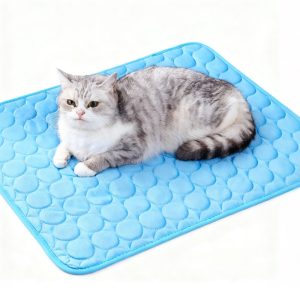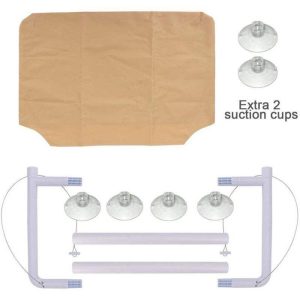Key Care Points for 8-Week-Old Puppies

Puppies living with their mother for an extended period receive adequate care and behavioral guidance, which positively impacts their health and personality development. However, in practice, some puppies are sold before reaching two months of age. The period between eight and twelve weeks is a critical stage in canine development, and improper care during this time may negatively affect their behavioral development.
I. High Sleep Requirements
Puppies of this age, regardless of breed size, exhibit minimal physical differentiation. They require approximately twenty hours of sleep daily, with adequate rest essential for normal physical development.
II. Careful Dietary Management
Having recently transitioned from nursing and possessing an immature digestive system, puppies at this stage have sensitive gastrointestinal functions. Improper feeding can easily cause vomiting or diarrhea. It is recommended to primarily use specialized puppy food, supplemented with pet-formulated goat milk. Before feeding, soak the kibble in warm goat milk or water to make it easier to eat and digest.
Divide the daily ration into four meals, following the portion guidelines on the food packaging. Smaller, more frequent meals help stabilize blood sugar and reduce digestive strain. Puppies in rapid growth phases typically have strong appetites; if they refuse food, monitor their health closely. Additionally, avoid giving snacks. Use small portions of dog food as rewards during daily training.
III. Chewing Behavior Emerges Gradually
Although permanent teeth replacement typically begins after sixteen weeks, the process of losing baby teeth starts gradually between eight and twelve weeks. During this time, puppies often chew on objects like furniture or socks due to gum discomfort. They may also gently nip at hands or feet during interactions with people. This is a natural way for them to explore their environment.
To reduce inappropriate chewing, store items securely and promptly stop interactions when the puppy bites. Resume only after it has calmed down. Providing designated chew toys or engaging in moderate tug-of-war games can effectively satisfy their need to grind their teeth.
IV. Incomplete Elimination Habits
Puppies have weak bladder control and struggle to hold their bladder for extended periods, often leading to accidents. They may also bark at night due to the need to relieve themselves. This is normal before crate training is established and should not be overly punished.
After meals, guide the puppy to a designated elimination area. Reward them after they finish to gradually build a conditioned response.
V. Focus on the Psychological Adaptation Phase
The period between eight and twelve weeks is a sensitive stage in a puppy’s psychological development, when they begin to show wariness toward unfamiliar things. During this time, help them form positive associations to prevent long-term fears. For example, if a dog fears water, avoid forcing a bath; instead, gradually acclimate them through incremental exposure. Patient guidance helps puppies overcome anxiety and adapt to various routine care procedures.
VI. Vaccination and Deworming Schedule
The first internal deworming is recommended between three and six weeks of age, prioritized over vaccinations. Administer doses strictly according to product instructions. Deworm monthly until six months of age; initial treatments may be completed one week before vaccinations.
Recommended vaccination schedule:
First shot (6–8 weeks): 2-in-1 vaccine
Second shot (12 weeks): 4-in-1 vaccine
Third Dose (16 weeks): 6-in-1 vaccine and rabies vaccine
Approximately four weeks after the third vaccination, a serum antibody test is recommended. If antibody levels meet standards, future booster decisions can be based on test results. If levels are insufficient, switch to a different vaccine brand and continue the vaccination series.
admin
-
Sale!

Washable Pet Cooling Pad for Cats and Dogs
$10.99Original price was: $10.99.$9.99Current price is: $9.99. This product has multiple variants. The options may be chosen on the product page -
Sale!

Washable Cat Window Hammock Cooling Bed
$23.99Original price was: $23.99.$22.99Current price is: $22.99. -
Sale!

Tropical Amphibian Rainforest Tank, Lizard Cage
$38.99Original price was: $38.99.$36.99Current price is: $36.99. -
Sale!

Silent 4-in-1 Waterproof Charging Dog Hair Trimmer
$49.88Original price was: $49.88.$47.99Current price is: $47.99.